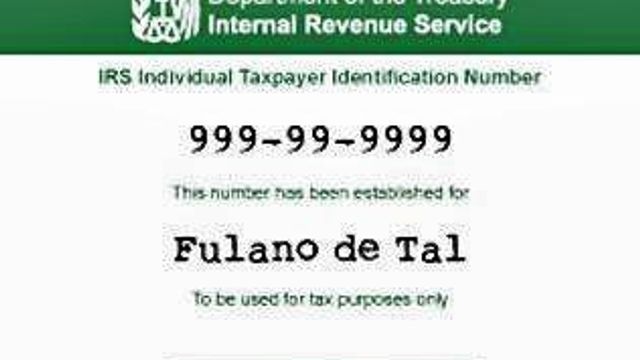Investigators: Child tax credit allows fraudsters a chance to cheat
Federal investigators uncovered more than 1,000 tax returns linked to eight addresses in North Carolina last May, with refunds worth more than $5 million. Investigators say it's part of a tax fraud scheme among suspected illegal immigrants that the Internal Revenue Service was warned about more than a decade ago but has done little to fix.
Posted — UpdatedWRAL Investigates found federal reports dating back more than a decade that warned the Internal Revenue Service about the problem. Yet, the IRS has done little to fix it.
Investigators uncovered more than 1,000 tax returns linked to eight addresses in North Carolina last May, with refunds worth more than $5 million.
Those tax fraud schemes are a problem across the U.S. and include refunds given for children, many of whom don't live in the U.S. or don’t even exist, according to the Treasury Inspector General for Tax Administration.
Those ITINs are at the center of the problem, allowing suspected illegal immigrants to get billions of dollars in tax credits for children who don't live in America, according to the Treasury Inspector General.
For taxpayers, the child tax credit offers welcome relief to families, but in a system where those children are rarely verified, the credit also allows the chance to cheat.
The IRS was tipped off after the U.S. Postal Service noticed a flood of “suspicious mailings from the U.S. Treasury Department appearing to contain Treasury checks” hitting the same mailboxes, according to court records.
Investigators tied at least 17 tax returns, totaling more than $62,000 in refunds, to a Charlotte apartment Figueroa leased. At another apartment nearby, investigators discovered 153 returns valued at $713,000 in refunds. Another address in the same apartment complex had 236 returns worth $1.1 million in refunds.
Investigators say the clustered addresses and a bank of mailboxes made for easy access to those refunds. An apartment complex manager told investigators Figueroa was seen taking mail from all three apartment mailboxes.
Down the road at another apartment complex, the tax scheme got bigger, according to investigators, who traced 398 returns to two apartments, totaling more than $1.9 million in additional child tax credits with no guarantee that the children existed or lived in the U.S.
Cisneros also owned a tax preparation business in a strip mall. A search of that business and her home turned up more returns, dozens of uncashed U.S. Treasury checks, a FedEx box containing dozens of birth certificates of Mexican origin and a notary public stamp and signature stamp listing Cisneros as the notary, bringing the fraud case to more than $5 million.
Despite Cogdell’s claim that his client is incapable of the tax fraud scheme, one group has been warning the IRS for years that ITIN fraud is a problem and is fairly easy to cash in. The battle is documented in four audits from the Treasury Inspector General for Tax Administration.
More than a dozen years ago, auditors wrote, "...providing illegal aliens with valid ITINs allows for certain tax advantages and increases the potential for fraud." Ten years later, they identified $1.8 billion in additional child tax credits to ITIN filers, noting those refunds went to "individuals with no tax liability."
The IRS defended its interpretation of the tax code, which states that illegal immigrants who pay no taxes are eligible for the tax credits. Filtering out who is not eligible is the problem.
“These applications for ITINs coming from the same address, thousands of applications … or thousands of returns coming from the same address – that screams fraud,” said former federal prosecutor Clay Wheeler, who specializes in tax fraud cases and currently works for Kilpatrick, Townsend and Stockton law firm in Raleigh. “It looks to me like the ITIN system has a lot of holes in it that need to be fixed … You can't help but be angry about that kind of fraud.”
“It's an agency that's subject to a lot of political pressures from both sides,” Wheeler said.
This year, the Treasury Inspector General found more problems, noting an undisclosed Raleigh address that received more than 2,400 tax returns worth more than $7 million. It called the IRS's ITIN review process so deficient that the same person could easily get multiple numbers.
“An IRS program that allowed other people, non-IRS employees, to certify the documents for getting these ITINs – that seems like a recipe for disaster,” Wheeler said.
When it comes to state tax returns, WRAL Investigates found the North Carolina Department of Revenue has taken steps to identify bogus ITIN returns. Canaan Huie is an attorney for the state agency, which has a team that specializes in state ITIN returns.
“Generally speaking, what we look at are the number of dependents that are being claimed and the size of the refund that’s being requested,” Huie said. “We did identify that this is a pretty significant area of non-compliance.”
While the additional child tax credit comes from federal money, the state spends extra time on ITIN returns. In 2010, nearly 6,000 ITIN tax returns were reviewed, 85 percent of which were adjusted, saving North Carolina taxpayers more than $4.7 million.
“Those results have been pretty good,” Huie said.
Related Topics
• Credits
Copyright 2024 by Capitol Broadcasting Company. All rights reserved. This material may not be published, broadcast, rewritten or redistributed.





